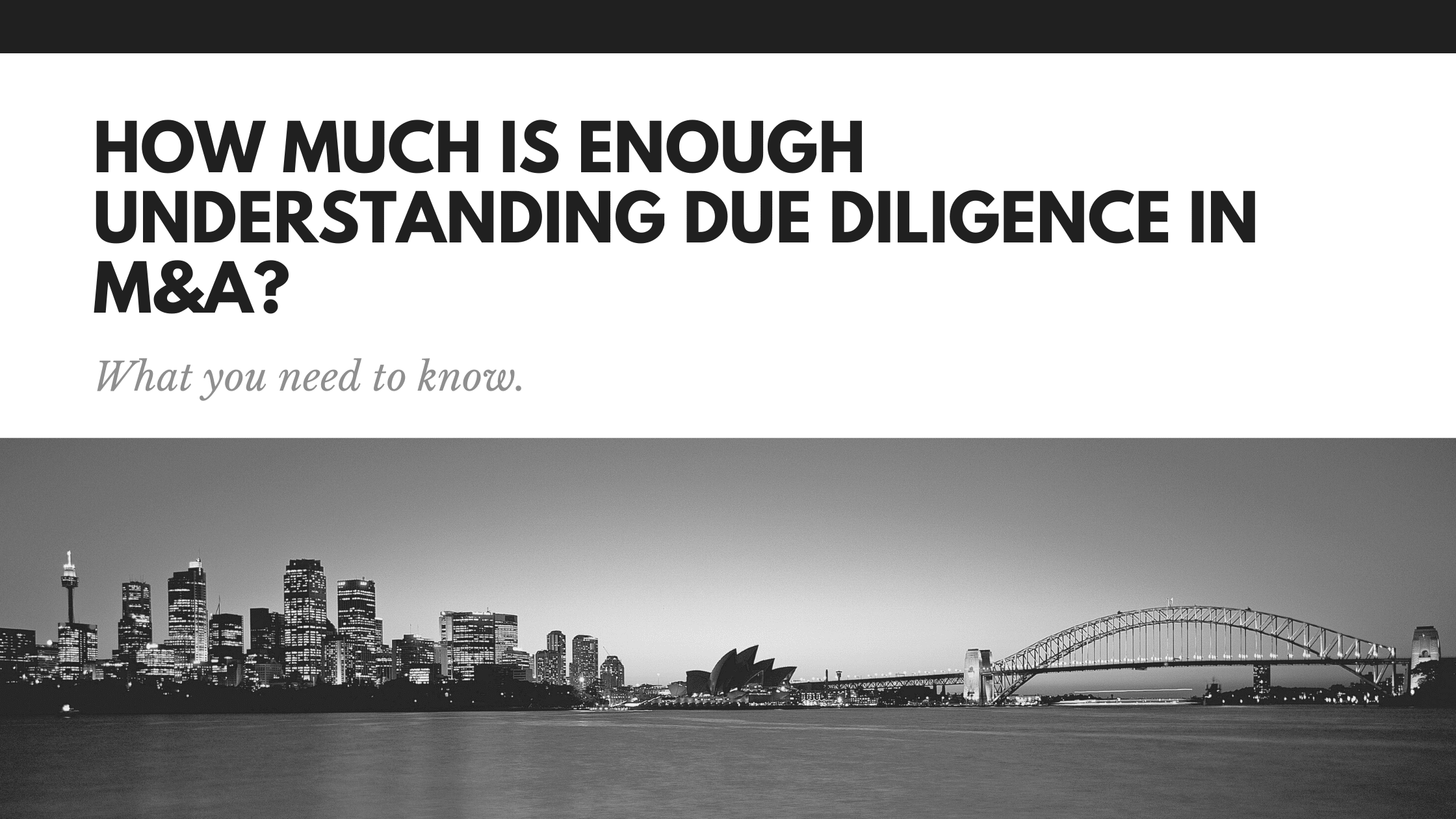
Mergers and acquisitions can be complex, multi-faceted transactions. In addition to the myriad tax, legal, and financial considerations which impact M&A transactions, there is also the burden of conducting adequate research in order to verify information prior to closing. This pre-closing research is referred to as “due diligence.” Due diligence in M&A encompasses a wide range of areas; essentially, this term refers to anything which a buyer (or seller) wants to verify in order to build credibility and influence the quality of the transaction. In this post, we will go over a few basic aspects of due diligence in M&A. We will discuss its essential purpose, the benefits of conducting a thorough investigation, the risks of failing to investigate thoroughly, and so forth.
Due Diligence is About Risk Minimization
At its core, due diligence is all about minimizing risk. This is true for both the buyer and the seller. Whenever one company decides to merge with or acquire another, there is always the possibility of valuation error. This can come about through omission, misrepresentation, ignorance, or outright fraud. Whatever the situation may be, engaging in thorough due diligence is really the only way to avoid becoming involved with something which ends up being unprofitable. There are many, many areas to investigate when it comes to due diligence. For instance, buyers should want to know about the target company’s current financial status, its workforce, its customer base, its patents, its current or past legal issues, and so forth. And then within each of these major areas, there is a virtually limitless number of questions to ask.
As an example, let’s just examine one particular area: finance. There are so many questions a buyer needs to ask before committing to a deal. For instance: are the financial statements reviewed thoroughly before dissemination? What sort of profit margins does the firm currently have? What about future projections for profit margins? What is the basis for the future projections? Are the projections reliable? How much capital does the firm need on an annual basis to operate (i.e. how much overhead)? How much outstanding debt? If there is outstanding debt, what are the terms of the debt? As we can see, there can be so many questions!
Potential Benefits for the Buyer
The potential benefits for the buyer are obvious. By engaging in a rigorous due diligence program, you are making sure that your investment is worthwhile. You are confirming that all of the representations which have been made are accurate and up-to-date. Furthermore, you are ensuring that your investment is likely to continue to pay dividends well into the future. As a buyer, you have to view your merger or acquisition as a long-term investment, and in order to support this view, you need to get a clear sense of the future value of your investment. The only real way to do this is to investigate the target company as thoroughly as possible.
Potential Benefits for the Seller
The benefits for sellers are equally powerful. For one thing, when you assist with a buyer’s due diligence efforts, you create trust and help to secure your deal. There is perhaps nothing more suspicious than a guarded seller who won’t cooperate fully and freely with a due diligence campaign. If you’re a seller, put yourself in the buyer’s perspective in this situation: why is the seller not cooperating with this investigation? Is there something to hide? In situations such as these, we all know that most people naturally contemplate a “worst case scenario” when a seller isn’t cooperative. By not assisting with due diligence, sellers may risk collapsing their deal. Sellers also may uncover positive information during a due diligence campaign. It’s not rare for companies to receive higher valuations after a due diligence program. Sellers may be able to negotiate better terms or higher prices after such a program based on positive findings.
Contact Trembly Law for Counsel Today
Due diligence in M&A is a vast topic. We will definitely return to this topic in the future in order to cover more ground. We will discuss other things to watch out for and other areas of inquiry during an investigation. For now, this should serve as a decent introduction. If you’d like more information, or if you have a specific case involving M&A, reach out to Trembly Law Firm today. We have years of experience consulting on complex M&A cases and would be delighted to offer our services. Give a call at (305) 985-4579.
Follow Us on Social Media
